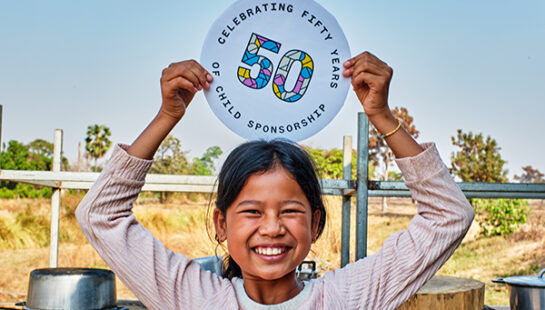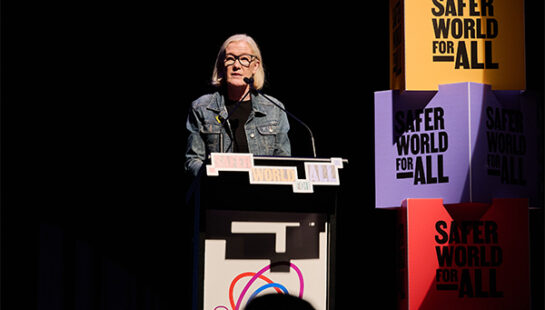In March 2020, the Bangladesh government closed all schools and educational institutions. More than one year later, they remain closed, greatly impacting Bangladesh’s 42 million students.
Despite the risk of learning loss, the concern is that many children will not return to school once the schools reopen, increasing their vulnerability.
‘As the pandemic continues, there is a good chance that the country will see a resurgence of higher rates of child-labour, child marriages, early pregnancy, malnutrition and even transactional sex for children and adolescents – and there is an increase in violence against children as stress levels have risen amongst parents,’ said Nathan Sarker, Baptist World Aid Australia’s South Asia Lead, in Dhaka.
COVID’s impact on family incomes—which have plummeted during the pandemic—is compounding these issues, leaving many households experiencing, or facing moderate to severe food insecurity. With limited income, parents are unable to afford their children’s education, instead requiring them to work and contribute to family expenses.
And this has a further impact on girls.
According to the United Nations Population Fund (UNFPA), the COVID-19 pandemic is likely to force upwards of 13 million additional girls into early marriage between 2020 and 2030, which will significantly hamper the reduction efforts made in this area.
‘If parents have to make a choice between sending a boy or a girl to school, they will choose the son to attend the school and try to marry off their daughter, thus, early marriage is becoming more prevalent,’ Sarker said.
It is therefore important that every effort is made to keep children in school. But while the government has taken initiatives to continue classes through television, radio, and other online platforms, not all students have access to digital technology – highlighting the deep divide between Bangladesh’s rural and urban students.
‘Wealthy urban children have continued their schooling online during the pandemic, but the lack of means and infrastructure has left the rural poor without access to education. After COVID-19, the dropout rate will surely increase,’ Sarker said.
According to the UN Sustainable Development Goals, the progress towards ensuring children had access to a quality education was already moving too slowly prior to COVID-19, with 200 million children estimated to still be out of school by 2030. Since the pandemic, 90 per cent of children have been impacted by school closures and remote learning is estimated to be out of reach for at least 500 million children.
‘Children are scared, worried and sad,’ Sarker said. ‘There is ongoing income and food insecurity at home, schools are closed, and they are worried about their education. And there is more violence at home. They are worried about what will happen if they get infected as they see people still going out despite the restrictions who don’t seem aware of the risks. Children with disabilities are also in more distress and at greater risk.’
Baptist World Aid believes in God’s call to care for the world’s most vulnerable. With the ongoing implications of a global pandemic, our call to act quickly in serving those in poverty is urgent. If we can improve food security, medical care, and access to clean water, we create a road toward fullness of life.
As our Christian partners support the most vulnerable, Baptist World Aid is grateful to the Australian Government who are creating greater impact by combining funds with any gift given to the Matching Grant Appeal before 30 June.



 Heather Keith,
Heather Keith,

 Mike Bartlett
Mike Bartlett